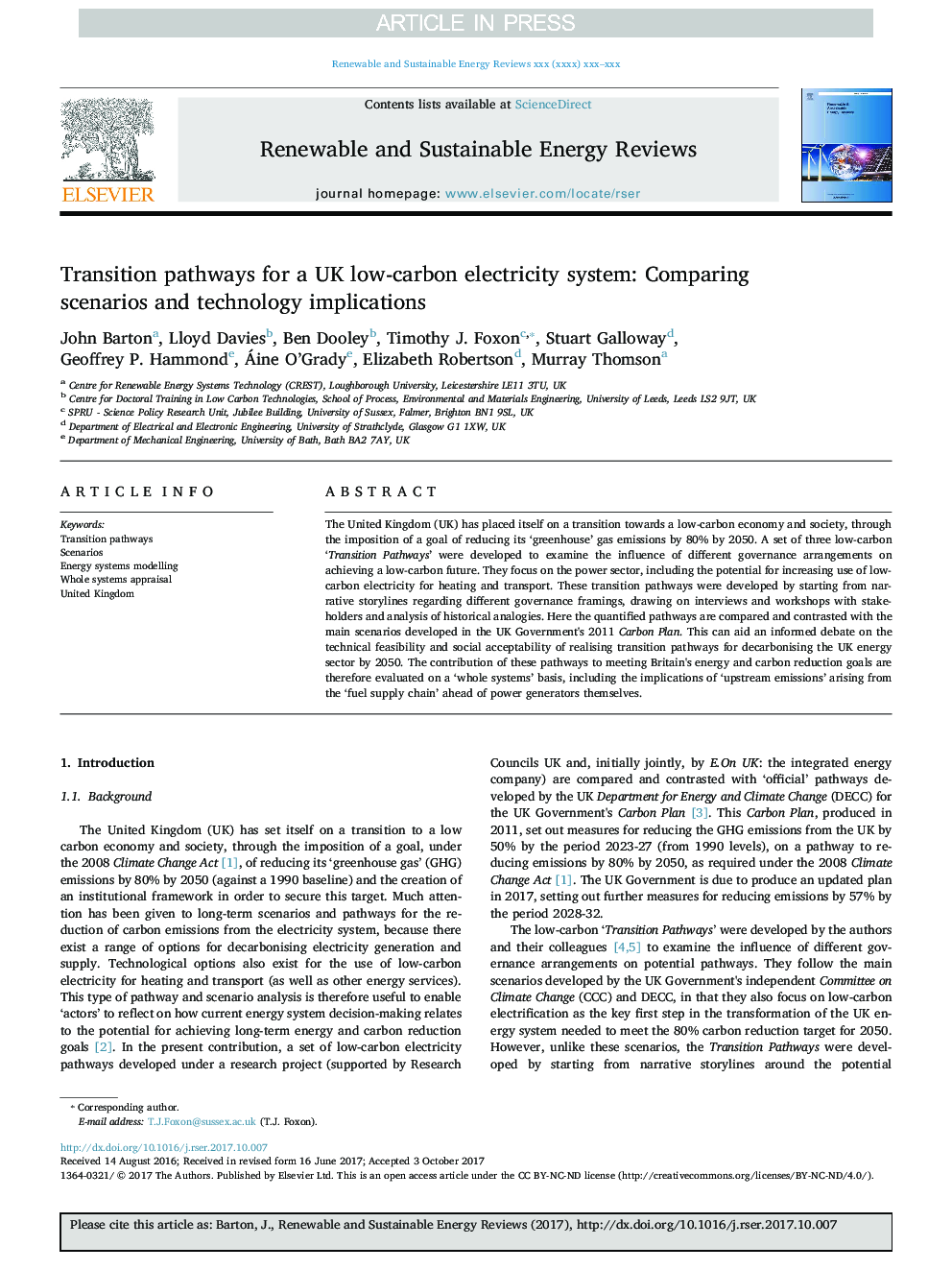| Article ID | Journal | Published Year | Pages | File Type |
|---|---|---|---|---|
| 8111931 | Renewable and Sustainable Energy Reviews | 2018 | 12 Pages |
Abstract
The United Kingdom (UK) has placed itself on a transition towards a low-carbon economy and society, through the imposition of a goal of reducing its 'greenhouse' gas emissions by 80% by 2050. A set of three low-carbon 'Transition Pathways' were developed to examine the influence of different governance arrangements on achieving a low-carbon future. They focus on the power sector, including the potential for increasing use of low-carbon electricity for heating and transport. These transition pathways were developed by starting from narrative storylines regarding different governance framings, drawing on interviews and workshops with stakeholders and analysis of historical analogies. Here the quantified pathways are compared and contrasted with the main scenarios developed in the UK Government's 2011 Carbon Plan. This can aid an informed debate on the technical feasibility and social acceptability of realising transition pathways for decarbonising the UK energy sector by 2050. The contribution of these pathways to meeting Britain's energy and carbon reduction goals are therefore evaluated on a 'whole systems' basis, including the implications of 'upstream emissions' arising from the 'fuel supply chain' ahead of power generators themselves.
Related Topics
Physical Sciences and Engineering
Energy
Renewable Energy, Sustainability and the Environment
Authors
John Barton, Lloyd Davies, Ben Dooley, Timothy J. Foxon, Stuart Galloway, Geoffrey P. Hammond, Áine O'Grady, Elizabeth Robertson, Murray Thomson,
